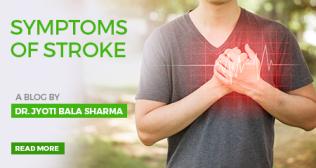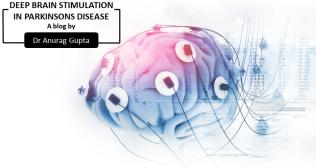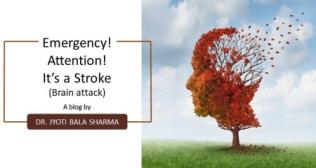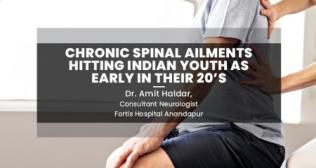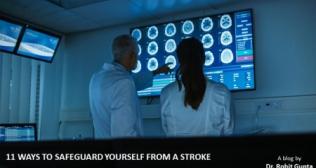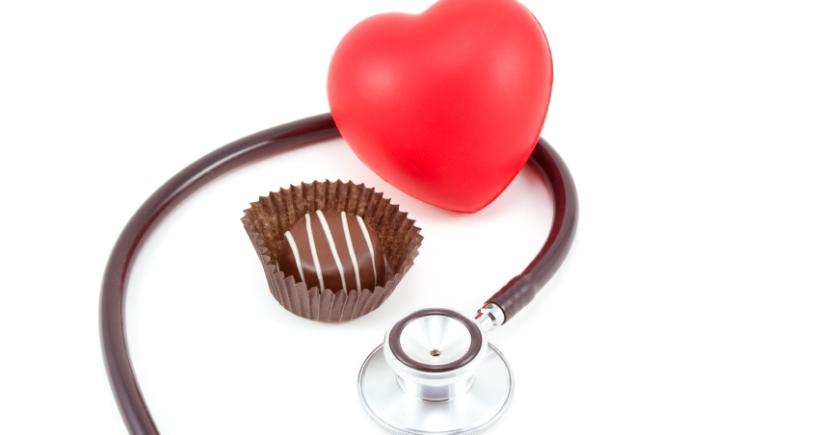
Could Eating Chocolate lower risk of stroke and heart disease? By Dr. Nitin Kumar Rai
Cardiovascular disease is one of the leading cause of morbidity and mortality worldwide. It comprises of coronary heart disease (CHD) and stroke causing the major burnt. It was estimated in 2020 that nearly 16.7 million deaths were attributable to these diseases, with an exaggerating figure of 23.3 million by 2030 probably. Hence, effective preventive strategies for all these cardio metabolic disorders are essential to improve overall public health and subsequently reduce the social and economic burden.
Diet is one of the key modifiable lifestyle elements involved in the prevention and further control of cardio metabolic diseases. Chocolate is a highly popular dietary food throughout the world since ages. But lately it has gained increasing attention for its potential benefits in cardio metabolic health. A number of experimental and clinical trials and studies have indicated a protective role of chocolate against oxidative stress, inflammation, endothelial dysfunction, and atherogenesis. This has resulted in accelerated clinical researches on health effects of chocolate in recent years. These effects have been confirmed in some recent meta-analyses of feeding trials also, supporting the favourable impact of chocolate on cardio metabolic risk factors such as lipid profiles, blood pressure, and insulin sensitivity.
Chocolate is a source of flavonoids and is particularly rich in epicatechin, catechin, and procyanidins (polymers of catechins and epicatechins). These flavonoids probably reduce the risk of stroke through several biological mechanisms including antioxidant, antiplatelet, and anti-inflammatory effects as well as by lowering blood pressure, increasing high-density lipoprotein cholesterol, decreasing low density lipoprotein (LDL) cholesterol, LDL oxidation as well as improving endothelial function.
Chocolates with a higher percentage of cocoa like dark chocolate, contains more flavonoids. Furthermore, results from short-term randomized feeding trials show that chocolate consumption reduces blood pressure which is a strong risk factor for stroke. The association between chocolate consumption and risk of stroke has been examined in 4 prospective studies. Those studies found that chocolate consumption was associated with a lower risk of stroke in women or women and men combined but the results were only statistically significant in 2 studies. “Basic science has demonstrated quite convincingly that dark chocolate particularly, with a cocoa content of at least 70%, reduces oxidative stress and improves vascular and platelet function, in a better way.”
Several short-term feeding trials have further shown that consumption of chocolate or cocoa products decreases systolic and diastolic blood pressure, especially in hypertensive patients.
The key to reaping the health benefits of chocolate is moderation. A single 100-gram bar of chocolate contains about 500 calories, and eating too much can contribute to unhealthy weight gain. In a trial the dose- response relationship between chocolate intake and incident diabetes was studied. The dose response curve was found to be J shaped stating that consuming chocolate in moderation (1-6 servings/ week) is associated with a decreased risk of diabetes, whereas a higher than moderate intake doesn’t provide such a benefit. On the contrary, for CHD and stroke the dose response pattern was not J shaped, a further risk reduction was observed with moderate-high intake of chocolate (>3 servings/ week).
In conclusion, it is necessary to be cautious about the adverse effects of high or excessive chocolate intake. Because when it is consumed in high amount the high calorie content cause unfavourable weight gain that is an established risk factor for hypertension, diabetes, stroke, dyslipidemia and cardiovascular diseases. Hence, the benefit of flavonoids is attenuated and even outweighed by the unfavourable effects of commercially available chocolate products when moderation is not considered.
Categories
Clear allMeet the doctor

- Neurology | Neurology
-
15 Years
-
1500










